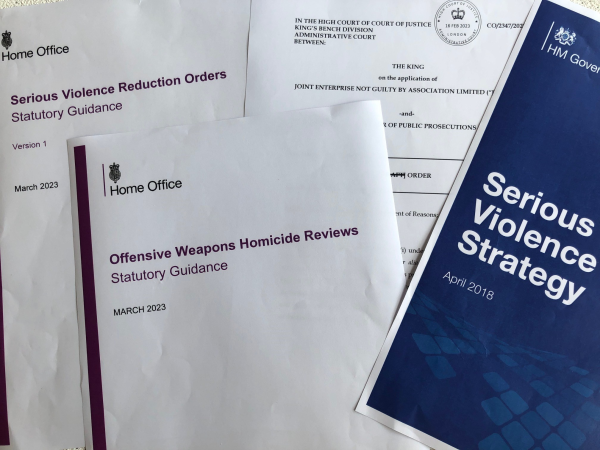
A new duty to review homicides involving offensive weapons is unlikely to achieve its aim of reducing weapons-enabled homicides, according to a publication released today by the Centre for Crime and Justice Studies.
Offensive Weapons Homicide Reviews (OWHRs) were introduced by the previous Conservative government in the Police, Crime, Sentencing and Courts Act 2022. Their stated purpose is to help national and local agencies understand the causes of serious violence and prevent future weapons-enabled homicides.
In today's report, authors Dr Susie Hulley and Dr Tara Young examine the potential benefits and risks of this new duty, particularly its impact on young adult safety.
They explain that OWHRs are not without merit; these reviews can provide victims' families and communities with detailed information about weapon-enabled homicides, and offer valuable local and national data on these crimes, particularly those involving young adults.
However, the report questions the efficacy of OWHRs, finding that the recommendations from other types of homicide reviews are frequently not acted upon. This raises serious concerns about whether the learning from these cases is being effectively implemented.
While the report provides recommendations that could mitigate some of the identified risks of existing homicide reviews, it ultimately calls on the government to put well-evidenced interventions that reduce serious violence at the forefront of its approach to serious violence.
Authors of the report, Dr Susie Hulley and Dr Tara Young said:
In light of these findings and the government’s ambitious target to halve knife crime over the next decade, we urge the government to reconsider the cost effectiveness of a national rollout of OWHRs, and to instead focus on well evidenced interventions that reduce serious violence and support young adults to flourish.
Helen Mills, Head of Programmes at the Centre for Crime and Justice Studies, said:
If OWHRs are rolled out this report highlights important learning about how they can best work. However, we have some scepticism about whether this is the right approach. Clear evidence already exists about how to best prevent and respond to serious violence, and that the particular needs of young adults are often overlooked. Yet good practice remains frustratingly fragmented, and lacking the long-term sustainable funding it needs.
We are grateful to the Transition to Adulthood Alliance, convened by the Barrow Cadbury Trust for supporting this work.